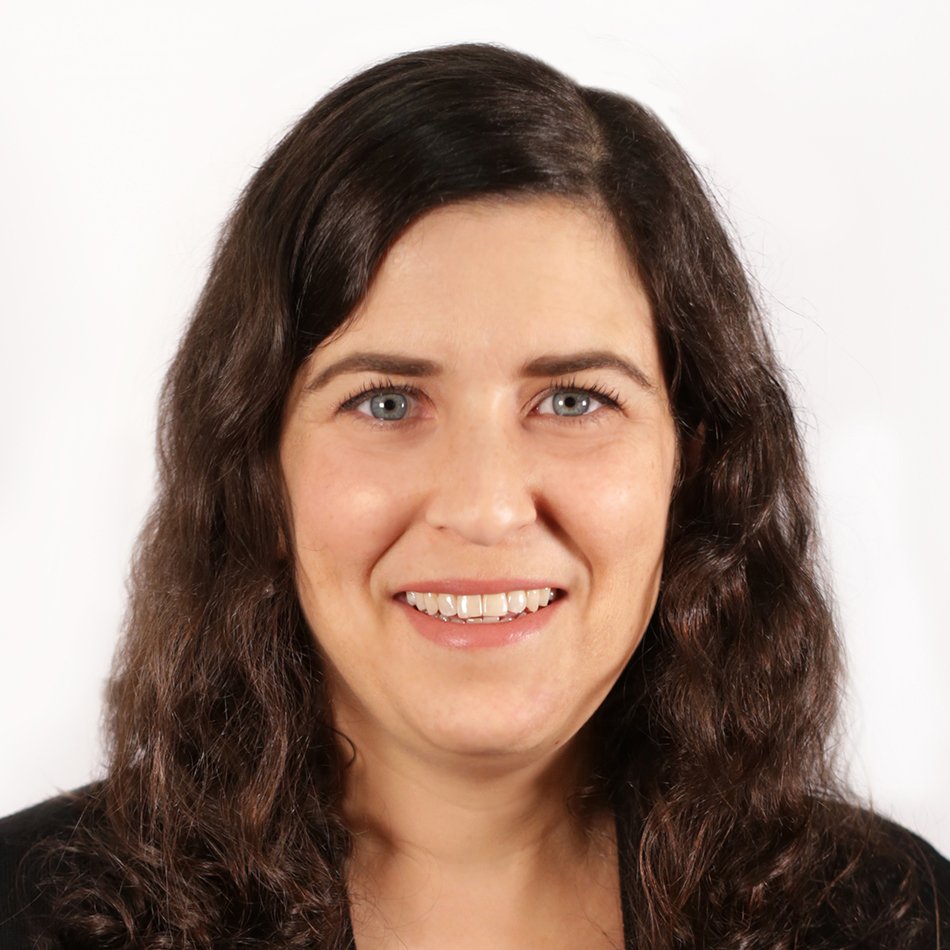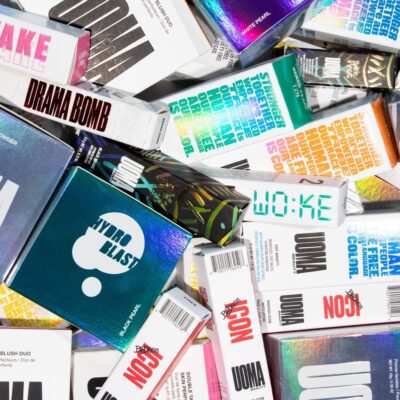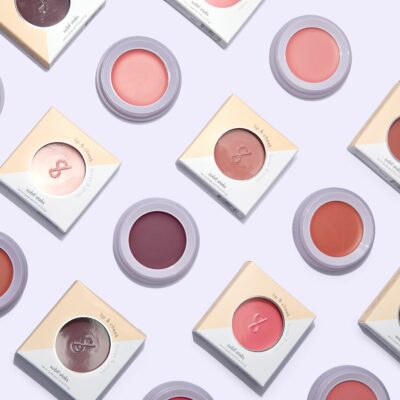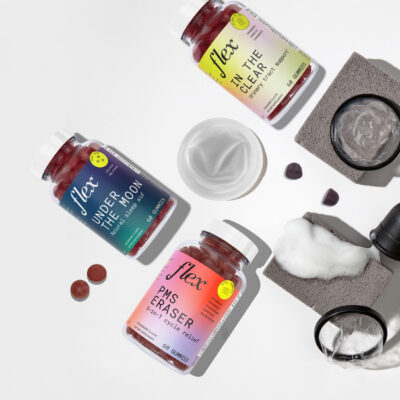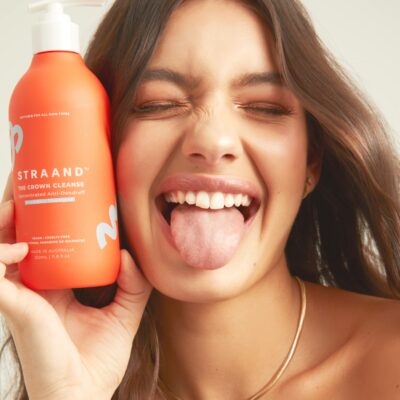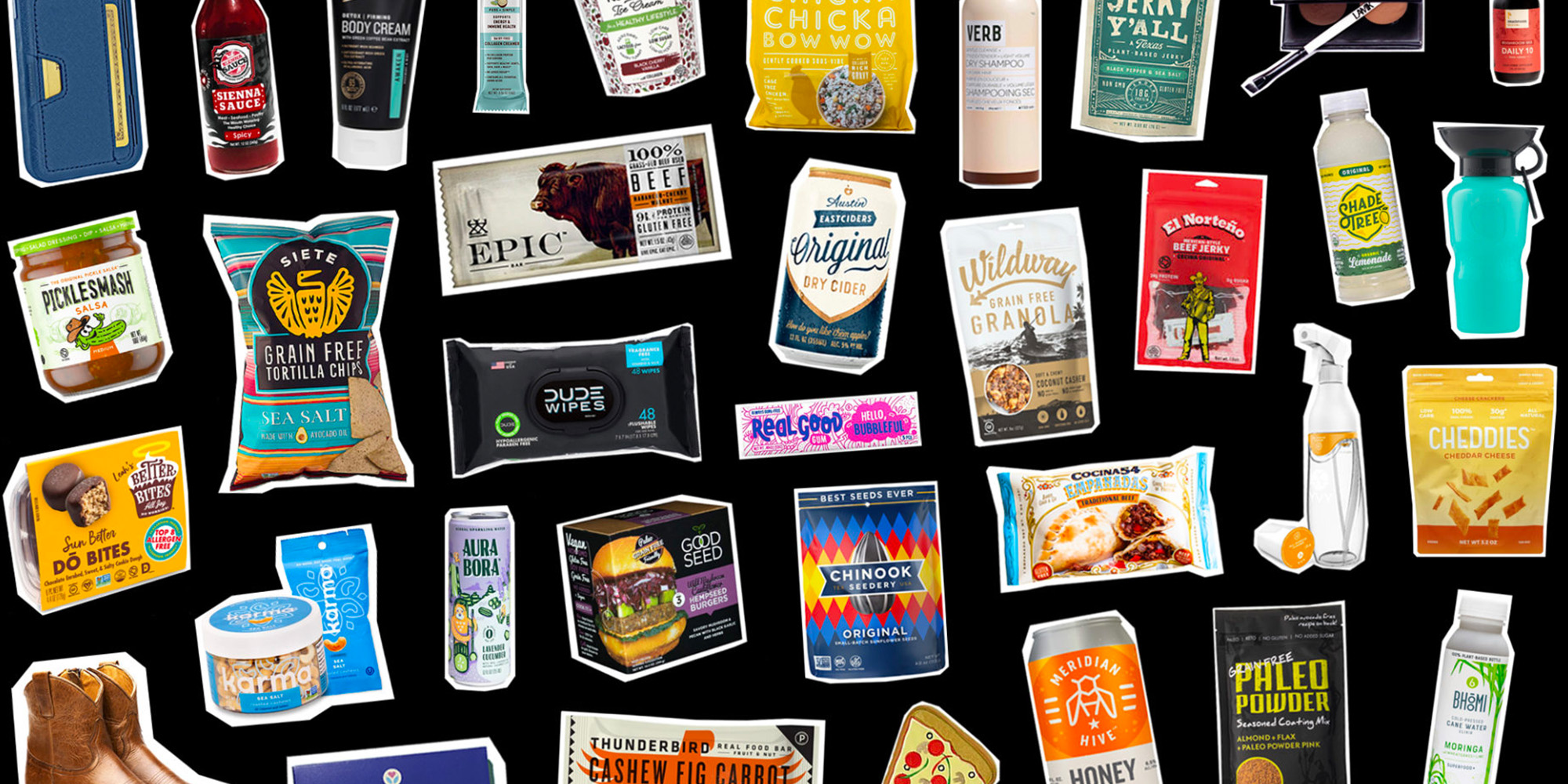
SKU’s Michelle Breyer Takes Stock Of Accelerator Programs And What CPG Brands Should Be Focused On Right Now
At textured hair digital destination NaturallyCurly, co-founder Michelle Breyer took a problem she was passionate about—that people with curly hair weren’t celebrated and couldn’t find products right for them—and addressed it by building a lucrative business. At SKU, an accelerator focused on early-stage consumer packaged goods brands, she’s helping the next generation of founders do the same.
“The key to getting people interested is communicating that why and not just that, but you have to communicate how you are going to make money off that,” says Breyer, CMO of SKU. “Why does hating your hair and creating something like NaturallyCurly lead to investors making money?”
More than 130 companies have gone through Austin-based SKU’s program, and the accelerator estimates over 90% of them remain in business. Established in 2011, it’s developed seven tracks or 12-week curricula designed for specific cohorts, including a track aimed at BIPOC and female founders and a track that extends it to New York. Raeka, American Provenance, Shaz & Kiks and True Moringa are among SKU’s beauty graduates.
Beauty Independent talked to Breyer about her path to SKU after NaturallyCurly, which was acquired by Essence Communications in 2019, what its program offers entrepreneurs, warning signs that an accelerator may not benefit founders, the lessons beauty brands can learn from food and beverage brands, and the one thing CPG startups should be particularly fixated on in a tough environment for fundraising.
You started out as a reporter, right?
I started as a business reporter. I went to journalism school and loved being a reporter. I thought that was what I would always be doing and didn’t really ever think of myself as an entrepreneur. I knew from own experience growing up with curly hair that there was nothing out there in terms of products and stylists. There was a lot that made you feel bad about your hair, whether it was looking at a magazine that was supposed to have all kinds of great stylists and it didn’t have one for curly hair or going to a salon and having a stylist look at you thinking, “Oh god, don’t sit in my chair.”
I grew up thinking my hair was ugly, that it was a problem. I had a whole elaborate regimen of blowing it straight, putting it in hot rollers, spraying it down and hoping there wouldn’t be humidity. Growing up in California, it was easier, but, when I moved to San Antonio to take a job, some days it was 100%, 200% humidity, and it was a fight I really couldn’t win.
I ended up moving to Austin and working at the newspaper there. There was a group of us curly haired women, and we would complain about our hair all the time. There was a shared feeling of, I know what you are going through. We were at a Sunday brunch with another friend of ours who had gotten a really cool bob. She had beautiful straight shiny hair, and it launched us into a conversation about the trouble with our hair. Somebody overheard us, and he was amused and said, “You should start a magazine or a website.”
Did you jump on it immediately?
We had been drinking mimosas all morning, and we got on the computer and did a search. We all knew that there was nothing for curly hair. So, we decided to do it. My neighbor’s 13-year-old son designed a website for us. We each put in a little money and did product reviews. The core of the site was CurlTalk, a discussion board that took off.
One of my business partners was savvy, and she got us on search engines. A lot of people had been doing searches and suddenly there was a site for them. Thousands of people were coming to CurlTalk a day, and friendships were formed. It became this incredible community. We didn’t really see it as a business. It was a hobby, and it happened organically.
Jessica McGuinty of Jessicurl was very active on the site. Over the course of a couple of months, she developed a hair product that people wanted to try. So, Jessicurl was born on NaturallyCurly, and a lot of people who became big hair influencers started on CurlTalk. There was a brand called AG, and they used CurlTalk to develop their curly hair product Re:coil. We didn’t even think at that point that we should charge for research.
We started CurlMart with two brands, AG and Phytospecific. We spent $1,000 buying product and setting up an e-commerce site. That weekend The New York Times Styles section did something on curly hair, and we sold out in a day. We were finding ways to monetize based on what our community was asking for. They wanted an e-commerce site, they wanted a place to find stylist reviews.
Advertising became a very big part of our business. Big brands like Procter & Gamble and L’Oréal and smaller brands like Curly Hair Solutions were getting traffic from CurlTalk, and they knew they could get in front of this huge number of curlies.
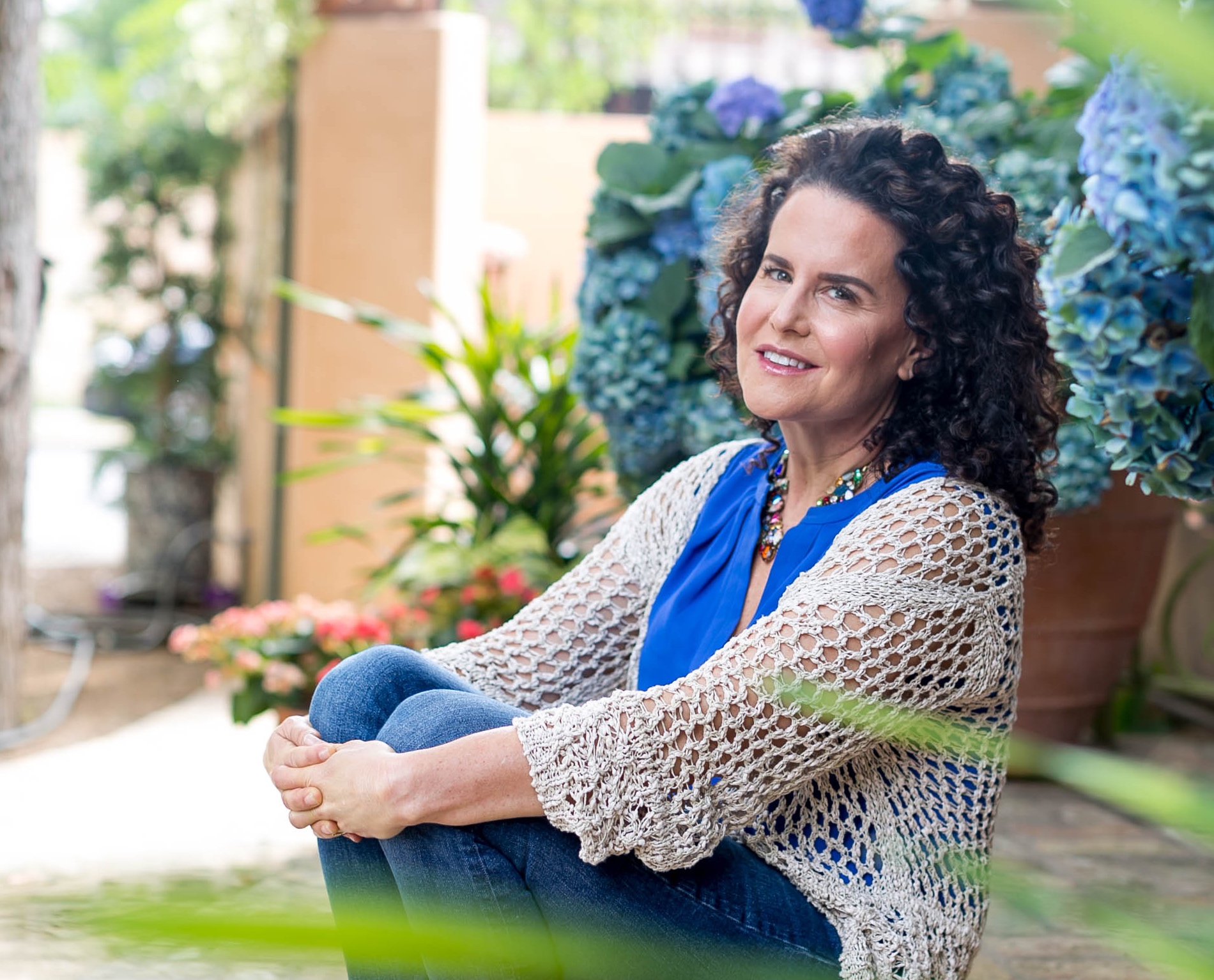
What happened when it came time to sell NaturallyCurly?
That happened organically, too, with Rich Dennis, the founder of SheaMoisture. We had grown to a point where we were thinking we were at the size where it would be great to have a liquidity event. We had raised money in three rounds, and our investors were ready for a liquidity event. We were the first place that SheaMoisture advertised. When Rich Dennis sold the brand, he bought different things in the textured hair space, and NaturallyCurly was a great property that Rich was very familiar with. It was a good fit.
What was it like to raise funding for NaturallyCurly?
We had this amazing advisor, Jimmy Treybig, who had been a source of mine at the newspaper. He was the founder of Tandem Computers. He had sold that to Compaq for almost $1 billion, and he was a big VC. He wanted to help founders because he wanted to give back. Initially, his eyes glazed over, but he was like, “Keep in touch, and let me know how you are doing.” Sales kept doubling and doubling, and he started to have advising meetings with us.
He encouraged us to have a meeting with Central Texas Angel Network. We were part of the first group that ever pitched to them. We were pitching against companies that were all male and all tech, but people in the room had curly hair, and they could see what a great market it was. We were the first company funded by CTAN. What that told me is that, if you have a good proposition and you can communicate why it’s unique, you can get people excited about it.
A lot of people laughed at us, saying, “You are never going to raise money. A curly hair website is crazy. Why don’t you do all hair?” Having that differentiator, living it and having a really strong why was compelling to people, but I also remember telling Jimmy Treybig about our business plan, and he said, “You have to tell me how you are going to make money. That has to come early in the pitch.”
Why did you want to join SKU?
After NaturallyCurly was sold, I consulted for haircare companies and started mentoring in Austin. I was recruited by SKU to be a mentor. There are amazing mentors at SKU, but there weren’t a lot of people with beauty backgrounds, and we have had a number of beauty companies that have gone through SKU, including Seaweed Bath Co., Verb and Esker.
I immediately fell in love with SKU. You worked as a team with other mentors, and the caliber of mentors was so high. I was loving being around other founders, and I knew some of what I had been through on my journey could be helpful. I joined as a team member in late 2019.
Over the last four years, SKU has expanded. Some of it was happening anyway, and some of it accelerated with COVID because we pivoted to a virtual program. We were able to attract companies and mentors from all over because geography wasn’t an issue. When I first came on as a SKU mentor, it was very Austin-centric. Now, we have mentors from coast to coast.
What do you tell brands about SKU’s program?
SKU takes equity of roughly 5%, and you don’t pay money to be part of it. Equity is very valuable, and you have to think about whether that’s something you want to do. In my case at NaturallyCurly, I was able to get mentors because I had been at a newspaper, I was able to find people to help out, but that wasn’t easy. I was lucky, but it’s very hard to find good advisors. The SKU mentors have fractional equity. Their skin in the game. I think all incubators and accelerators have mentors that are very committed, but it goes to a different level when there is equity involved.
One of the things SKU does well is basically create executive team for each brand. When a band comes into SKU, they have a team that works with them throughout the whole course. You have this hand-picked team of custom people, and many of those people go on to be advisors, board members or executives at that company. So, I think people get a lot for their equity.
Founders have to work for it. Some founders are like, “I didn’t know it was going to be this much work.” If it’s a good program, it should be hard work. We want companies that have some traction like $100,000 in revenues or above, but maybe they don’t know how to grow beyond that, and that’s going to take hard work and a willingness to be coachable and think outside the box. It’s not like you automatically join an accelerator, and your business takes off.
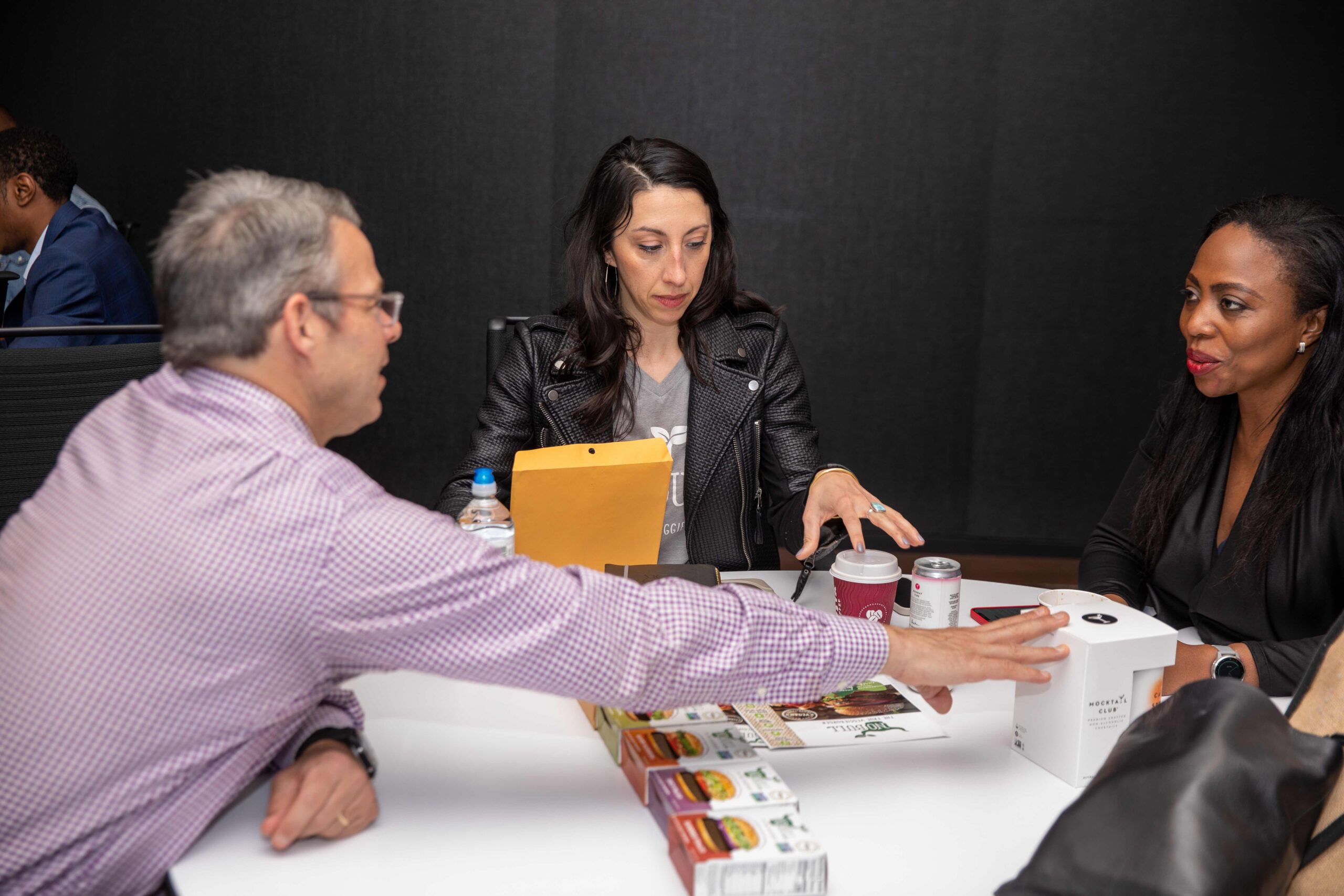
There are a lot of accelerators now, and there’s a feeling that some may take advantage of emerging brands. What are your thoughts?
I’m leery of are programs that take everybody and want money upfront. To me, that really does take advantage of people because their revenue model is a volume model. SKU’s model is that we benefit when there is a liquidity event.
We get hundreds of applications, and we narrow it down. When we take a founder, we are looking for founders that want to have some kind of liquidity event. We are not looking for lifestyle brands, which are great. They employ people, run great businesses and have great products, but they don’t intend to have a sale. We make very clear when we are talking to brands that we want brands that are aiming for a liquidity event, and you will be giving up equity.
I think anything where there is an upfront cost is where I really worry about the founders. I was talking to a founder who had gone through one that is no longer around, and there were all kinds of promises. They had paid, and they feel they didn’t get any benefit from it.
We hope brands that come out of SKU have a network of people to support them, and we can help them raise money and figure out a roadmap to get them to where they want to be. We continue to do that long after they are in the cohort. We do continuing education for founders on topics they want to know about because we want to continue to be there for them to increase the chances of them succeeding.
What return on its investment has SKU seen?
We’ve had some big success. Epic Provisions was sold to General Mills for about $120 million. Siete had one liquidity event and may be acquired. Mentors have had a 10X return on Siete. There are big liquidity events and smaller liquidity events. Some companies are just getting to the size where they could be an acquisition target like Dude Wipes. Trophy Skin had a sale.
Some cohorts may not have had a liquidity event so far, and some brands are just getting to that $15 million to $20 million range. We make sure everyone knows there are no guarantees. When you become an equity mentor, you have to be an accredited investor, and you have to know there is no guarantee. When we’re picking brands, though, we are picking those that we believe have the potential to be the next Siete or Epic Provisions.
Female and BIPOC founders continue to get a very small percentage of venture capital funding. What’s going on?
We have a cohort kicking off in August that is female and BIPOC founders. In general, even though there are more funds for them, there’s still a disconnect and a bro mentality in the investment community. There’s just a lot of work yet to do. A lot of the VCs and PE firms invest in what they know, and a lot of times that is companies founded by men.
Almost every company, if they want to grow quickly, is raising money, and when there does seem to be such a bias toward investing in male founders, it continues to hold back female-founded companies. In some segments like beauty, obviously, women are getting funded, and they are having liquidity events, but there’s still a long way to go, and in food, bev and tech, we are still not seeing that kind of success.
In the market overall, funding for early-stage companies has plunged. What’s a startup to do in this climate?
You have got to be aware of your cash situation. You’ve got to be conserving cash. You never want to be in a position where you have to raise money. The fundamentals of business are really always the same, you want to be in a position where you have leverage. You may not be able to be as aggressive about things that are going to eat up a lot of cash.
Sometimes people confuse revenue and profit with cash. Your revenues can be growing tremendously, and you can run out of cash. We see this a lot where a brand will have an incredible opportunity, some major retailer like Target or Costco will want them, and that can put a lot of companies out of business because they don’t have the cash to support that.
A retailer like Target will have 60- to 90-day payment terms, and then you have to support the launch with trade spend. It’s hard for a brand to say no when it’s not the right time to do that, but, in some cases, they really need to wait. That can be the difference between going out of business or not. It’s about really having a firm grasp on your financials.
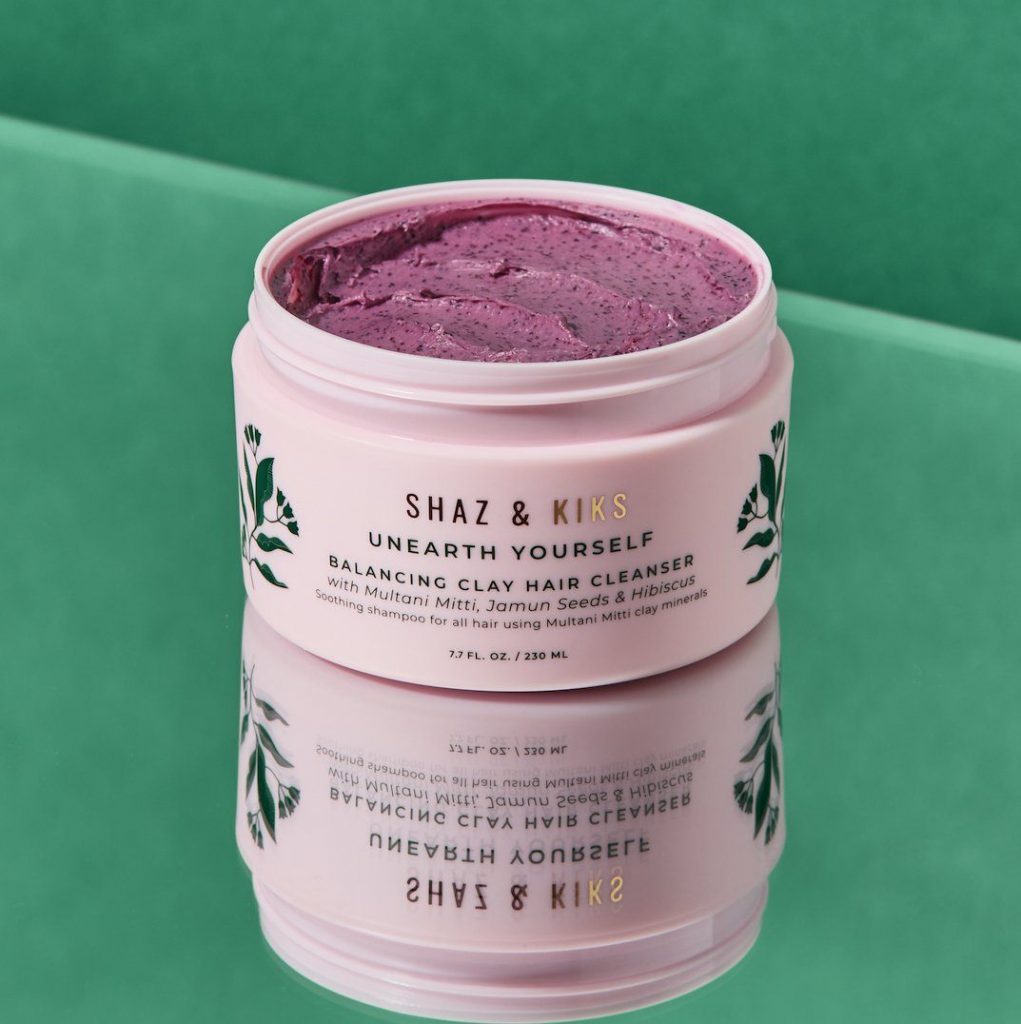
Are you seeing brands’ growth slowing?
It depends on the company. Some companies are just seeing incredible growth. I don’t think there’s an across-the-board, one-size-fits-all growth rate. I do think that a lot of companies have an unrealistic goal of hockey stick growth. It’s healthier to have a slower, but steadier growth rate that you are able to sustain. If a company has had a huge growth rate, it’s probably unrealistic to expect it to maintain that rate.
What lessons should beauty learn from food and beverage?
Initially, I thought they were so different, and I’m learning how much they are the same in terms of innovation and having to have new products all the time. I saw a post about a pasta company called Goodles coming out with an IPA flavor. I think many times people come out with flavors to have something new, and it’s not anything the consumer is asking for.
You want to have a reasonable number of SKUs. Don’t just add product to add product. Make sure you are supporting the products you have and understanding the market before you start adding products. And make the value proposition easy so people understand why they should buy something.
We have a brand that we are working with that had something on the box that wasn’t really the thing that was going to get people to buy the product. It said nothing about the taste. Make sure that what you have on your packaging is compelling. Don’t have a million things on your package. Sometimes there will be 20 things on a package, and the consumer sees nothing.
How do you want to grow SKU?
I don’t think it’s our desire to grow tenfold. That’s when you get into trouble as an accelerator. We want to make sure companies are getting what they need. You don’t want to just have new cohorts popping up all over and not have the mentors to support them. It’s more about awareness, making sure we are attracting the best mentors and that the high-caliber companies who need us know we’re here.
